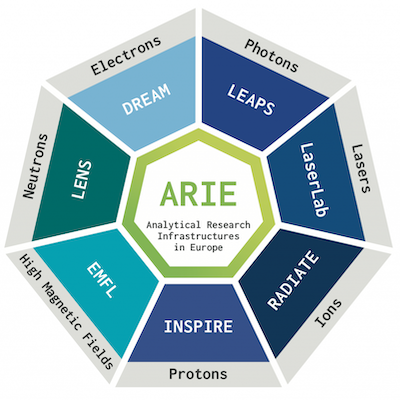ALBA Synchrotron

After the joint position paper published as a pre-release in July, in which the Analytical Research Infrastructures of Europe (ARIE) presented their plan to tackle HE Missions, the ARIE enhanced its cross-border, multidisciplinary collaboration to offer Europe a strong and valid weapon against the present COVID-19 challenge and other potential viral and microbial threats.
"With this paper, once again, the Analytical Research Infrastructures of Europe have demonstrated their multidisciplinary strength", says Caterina Biscari, Chair of LEAPS and Director of the ALBA Synchrotron. "The varied and complementary analytical techniques available in the ARIE, coupled with the strong scientific European networks, have enabled to join efforts and battle the sudden, unexpected challenges of the present COVID-19 pandemic".
The ARIEs are centres of scientific and technological excellence and represent the widest and most mature set of research infrastructures in the world. Supporting a growing community of some 40,000 researchers across Europe, and indeed the globe, they bridge scientific disciplines, academia and industry, and function as multi-faceted science and technology enablers. "They have already demonstrated that they are able to stand together to confront societal challenges such as cancer and COVID-19", says the coordinator of the ARIE working groups, Mirjam van Daalen, vice Chair of the LEAPS coordination board and Chief of Staff of the Photon Science Division at Paul Scherrer Institute in Switzerland. "Their unique capacities, skills and cultures – often reflected in their position on the ESFRI Roadmap – are critical to the analytics and characterisation of Viral and Microbial threats".
"The technical expertise of the ARIEs has an impressive track record in fostering the development of critical technologies for diagnostic and therapeutic procedures in medicine and health," highlights Helmut Schober, Chair of LENS and Director of the leading European Neutron Source ILL in Grenoble. "The combination of high-end infrastructure and expertise at the different ARIEs is unmatched in the world and it forms an ideal base to develop new and existing multi-disciplinary approaches to tackle infectious agents", adds Schober.
With the collaboration of Fundación Española para la Ciencia y la Tecnología. The ALBA Synchrotron is part of the of the of UCC network from the FECYT and has received support through the FCT-20-15798 project.